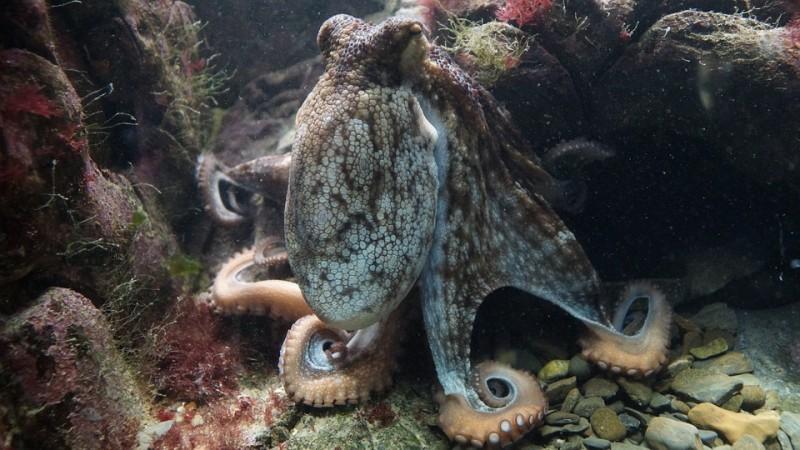
A rare incident of octopuses crawling ashore on a British beach has shocked everyone, and nobody can quite explain why it's happening.
What the creatures do underwater is undoubtedly their business, but when they decide crawl on dry land to die, they're surely signalling something threatening -- something to be worried about.
The octopuses were seen on a Ceredigion beach on the Welsh coast on Friday night.
According to Welsh boat tour operator Brett Jones, more than 20 octopuses was seen emerging from the sea on three consecutive nights last week.
It is a very uncommon thing for curled-up octopuses to be seen on land as they dwell 300 feet below water, the Telegraph said.
Brett told the BBC: "It was a bit like an end of days scenario…There were probably about 20 or 25 on the beach. I have never seen them out of the water like that."
He added: "Maybe they are getting confused by the bright lights in New Quay harbour and maybe they are dying off after summer or getting knackered after the recent storms."
Reportedly, Brett tried to move as many as he could back into the water but the next day he still found many dead ones washed up on the beach.
"We collected the ones that were totally out of the water, and plopped them back in at the end of the pier, hopefully saving them from getting stranded," he said.
The crazy incident made Harry Potter author JK Rowling tweet about it: "As if 2017 wasn't crazy & terrifying enough, the octopuses are mobilising. [sic]"
As if 2017 wasn't crazy & terrifying enough, the octopuses are mobilising. pic.twitter.com/2vfN3uTQFn
— J.K. Rowling (@jk_rowling) October 28, 2017
Elisa Caref, a marine biology educator, told Jezebel it sounded like a "fish kill event," which happens mainly in lakes and ponds having poor water quality. This rarely happens in the open ocean or salt water, Elisa added.
The curator at the National Marine Aquarium in Plymouth, James Wright, told the Telegraph: "As the areas where they are exhibiting this odd behaviour coincides with the two areas hit by the two recent low-pressure depressions and associated storms of Ophelia and Brian, it could be supposed that these have affected them."
Wright added: "It could simply be injuries sustained by the rough weather itself or there could be a sensitivity to change in atmospheric pressure."









!['Had denied Housefull franchise as they wanted me to wear a bikini': Tia Bajpai on turning down bold scripts [Exclusive]](https://data1.ibtimes.co.in/en/full/806605/had-denied-housefull-franchise-they-wanted-me-wear-bikini-tia-bajpai-turning-down-bold.png?w=220&h=138)



